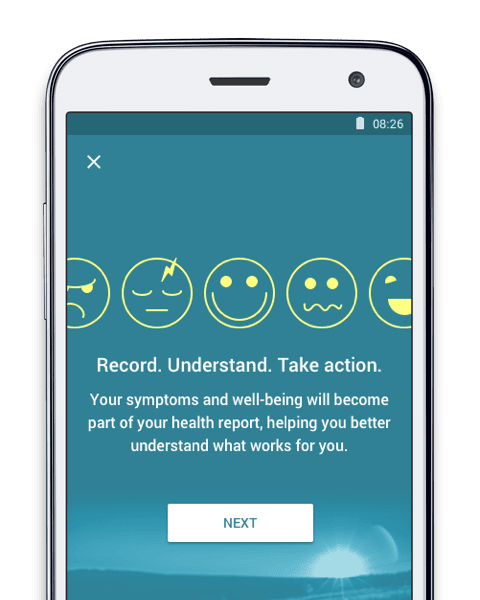Over the years we’ve heard more and more stories of psychological manipulations. They can develop in various types of relationships and come in different forms, but the end effect is similar: deceiving the perception or behavior of others. Psychological manipulation typically involves verbal actions in which the words are deliberately used to distort an individual’s mental and emotional conditions. Lately, the term ‘gaslighting’ has been thrown around a lot as one of the phenomena of modern-day psychological manipulation. The term itself isn’t new, and it may not be as blatantly expressed as verbal bullying, but the effects are as deep and impactful as direct verbal attacks. Learn what it means, the signs, and how to deal with it.
What is gaslighting?
Gaslighting is a psychological technique to undermine an individual’s judgment, memories, and feelings by making them question their own perception of right and wrong. After communicating with a ‘gaslighter’ (someone who practices gaslighting), you may feel dazed and wondering what’s wrong with you. For example, when you ask a gaslighter about something they did or said, they may deflect your question by saying something like: “You’re imagining things.” On another occasion, they may use compassionate words as a weapon: "You know how much I care about you. I would never hurt you." When stories and memories are constantly framed in the gaslighter’s favor, you may begin to second-guess your memory. This is the goal of gaslighting.
The process usually doesn’t happen overnight but develops gradually over an extended period. In some extreme cases, the victims may start to question their sanity and become dependent on the gaslighter. Besides feeling confused, people who experience gaslighting often feel anxious, isolated, and unable to trust themselves.
The term ‘gaslighting’ itself isn’t recently coined. It originates from a 1938 play and a 1944 film Gaslight. The story revolves around Gregory, a manipulative husband of Paula, who distorts his wife’s perceptions of reality and making her unable to distinguish the truth from the falseness. In one scene, Paula starts to question her perceptions after she asks why the gaslights in the house are flickering. Gregory asserts to her that it’s all in her imagination, although he’s the one who causes the gaslights to flicker in the first place. Hence, the name ‘gaslighting’ was born.
What are the signs of being gaslighted?
Gaslighting can happen in many places, such as families, workplaces, or schools. In many cases, people are not aware that it’s happening. In her book, The Gaslight Effect, Robin Stern, Ph.D., Associate Director of the Yale Center for Emotional Intelligence, mentions some common examples of being gaslighted. The list below contains some common signs of gaslighting:
- You often ask yourself, “Am I too sensitive?”
- You feel confused and even crazy in the relationship
- You’re repeatedly apologizing
- You can’t understand why you aren’t happier
- You frequently make excuses for your partner’s behavior
- You know something is wrong, but you just don’t know what
- You start lying to avoid put-downs and reality twists
- You have trouble making simple decisions
- You wonder if you are good enough
What is an example of gaslighting?
Gaslighters knows how to push others to the limit and clouds the victim’s common sense with their impactful word choices. In her book, Stern further explains some common phrases you might hear from a gaslighter:
- You’re so sensitive/you’re hysterical
- You are just paranoid/you are making that up
- I was just joking/it’s no big deal
- You’re imagining things/you know you don’t remember things clearly/that never happened
- You’re overreacting/you are always so dramatic
- Nobody believes you, why should I?
The variations of the words used are limitless, but they all could influence a person’s thoughts as well as actions, and eventually, harm their wellbeing.
How to deal with gaslighting?
The National Domestic Violence Hotline recommends a few ways on how to respond to gaslighting:
1. Proof
Typically, the victims of gaslighting have difficulties remembering what happened as their self-perception is tainted. Keeping proof of the incident(s) can help you to rely more on the evidence than memories. Here are some examples of how you can document some proofs:
- Keep a journal, voice memos, or take pictures
Every time you encounter something, write it down, record the event verbally with your phone or take photos. Note down the date, time, and what happened. - Speak to a trusted friend or family member
Speaking to someone can help you gain an outside perspective. Letting someone else know what’s going on also creates an external, additional record of information as well as gives you some emotional support.
2. Safety planning
When we’re dealing with unhealthy relationships, it is essential to have a safety plan. This includes how to remain safe during and after you leave the relationship.
- Don’t isolate yourself from friends and family
The more isolated you are from other people, the more pronounced the influence of gaslighting in your life. You are likely to be more dependent on the gaslighter if you feel alone. - Join a support group or reach out to a local domestic violence program
Talking to other people (especially those who have the same experience as you) can help you heal from your condition. It also aids you to validate your experience and recognize that what the gaslighter did isn’t ok, and it’s both psychologically and emotionally abusive.
3. Self‑care
One of the ways to combat and heal from gaslighting relationship is self-care. Self-care is about making yourself feel comfortable in ways that feel best to you. It may involve reflecting on the past, excepting the present, and rebuilding the future.
- Reflecting on the past
Take a moment to think and process what happened to you. You could start by recognizing the situation and deciding what to do next. - Excepting the present
Seek therapy if it is necessary. Gaslighting can lead to paranoid thoughts and affect your mental health in a long term. Remember, mental health is as important as physical health. - Rebuilding the future
Give yourself permission to trust your feelings, thoughts, decisions, and intuitions. It can take some concerted effort to remember how to trust your gut after experiencing gaslighting for a while. Have patience with your process.
Psychological abuse may not leave physical marks on its victims, but it can be just as damaging as physical abuse. Trust your own feeling in every situation. If you start to notice something is off in your relationship, confide in someone you trust. Only by noticing the signs and acknowledging the situations, you can help yourself regain your life back.
Here are some other articles we think you might like:
“I Hate My Life”: Understanding and Treating Clinical Depression



